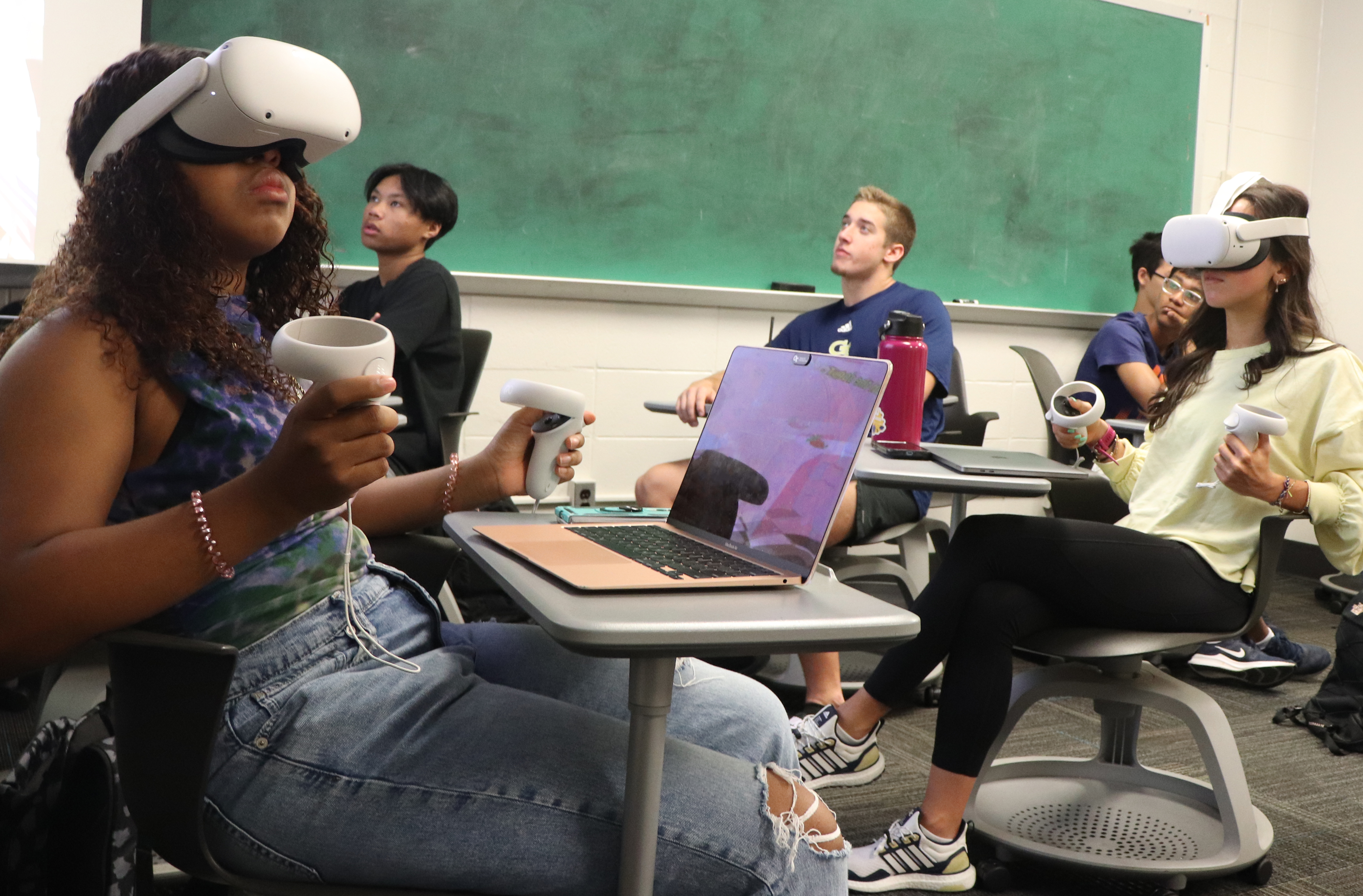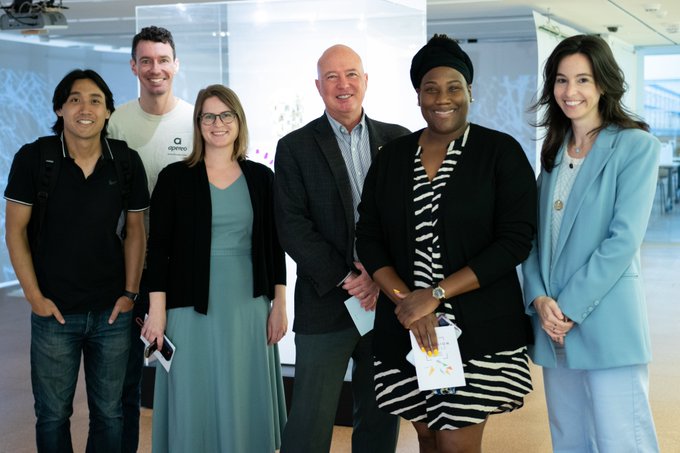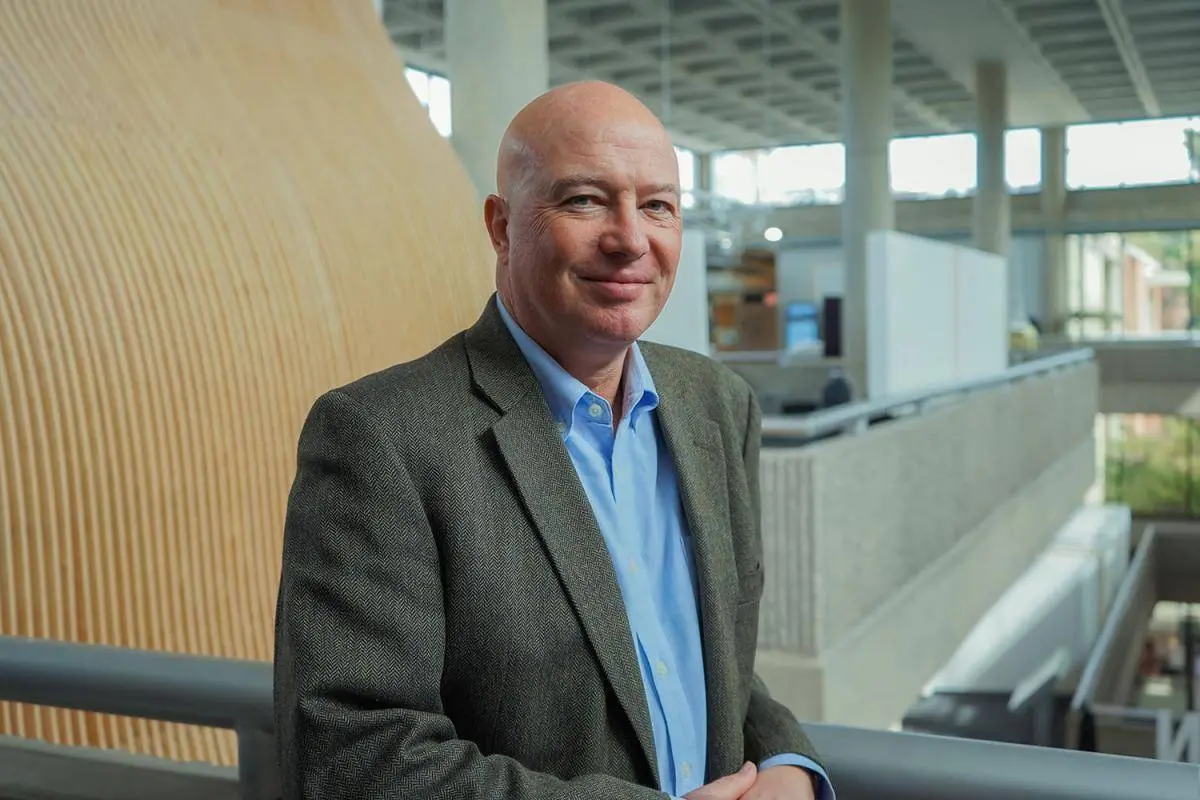2024 C21U Impact Report

We Champion Innovation
Over the past three years, C21U has been dedicated to transforming higher education through innovation. We have utilized machine learning (ML) techniques to conduct studies to improve engagement and foster higher-order thinking in online learning environments. Our research has also focused on providing AI-enhanced tools to instructors and curriculum developers in higher education to enhance learners’ engagement and improve overall completion rates. Additionally, we have developed models to identify applicants based on their skills and determine those most likely to complete online master's programs. Our work also involved researching the impact of ChatGPT on adult students' learning processes and outcomes and conducting a comprehensive survey to assess students' readiness for VR by evaluating their familiarity with VR/AR technology, confidence in using it, and understanding of its unique features.

Championing Our Students
At C21U, our work focuses on supporting Georgia Tech students. We conduct research and lead various projects to support their learning journey. Currently, we are enhancing the user experience on Canvas for students, instructors, and facilitators. Our researchers are also teachers who have taught and guided numerous graduate and undergraduate students in their research through their VIP class in the past three years. We have also piloted and studied Class.com to provide insights for developers and create instructional design strategies for synchronous online learning to enhance learning performance using this platform and similar products. Additionally, we have investigated the impact of integrating art into a graduate-level advanced geometry course to improve students' creativity.
We Celebrate Collaboration
Collaboration is at the core of C21U’s mission to transform higher education. We have partnered with Georgia Tech faculty to develop different types of research and with Microsoft to launch the GT-Microsoft Accessibility Research Seed Grant program. As a founding member of the Digital Credentials Consortium, we have allocated resources to aid in the development and implementation of digital credentials campuswide. Additionally, we play a leading role in the Institute’s educational technology thought leadership through our involvement in the Educational Technology Steering Committee (ETSC) and the Education Innovation Council (EIC). Our contributions also extend to developing research, policy, and education regarding generative AI technologies' use, risks, and benefits.

Executive Director's Letter
What an exciting time to be at the forefront of innovation in higher education! It has been a bright and busy year for C21U, and the future looks even brighter. The higher education landscape is rapidly evolving, driven by changes in student demographics, technological advancements, and the need for more agile educational institutions. We are proud to be a global thought leader in this space, helping keep Georgia Tech in the vanguard of effecting positive change to fulfill our mission of developing leaders who advance technology and improve the human condition. We are ranked second in the country in “most innovative schools” by US News, and our work at the center has helped drive this in no small part.
And now our potential for impact has gotten even greater. In July 2023, C21U, the Center for Education Innovation in Science, Math, and Computing (CEISMC), and Georgia Tech Professional Education (GTPE) joined together to form the core of the Lifetime Learning Division. Then on September 5, 2024, President Cabrera took that Division and formed Georgia Tech’s first new college in over 36 years, the College of Lifetime Learning. The three units will continue to operate as we have in the past and under our names but will begin working to fully build the seventh college at the Institute, undertaking traditional teaching, research, and service roles.
The concept of the "traditional" student - typically aged 18-24 and attending university full-time - is becoming outdated. Today's learners, whom we now call "new-traditional," often have different needs and expectations. They may be older, working full-time, or have family responsibilities. Our Center must pivot to focus on optimizing learning experiences for this diverse group, leveraging advanced technologies to provide flexible, accessible, and personalized education.
In today's rapidly evolving job market, the need for continuous learning has never been more critical. We recognize the imperative to support lifetime learners in their efforts to upskill or reskill to meet the demands of a changing workforce. By leveraging advanced learning technologies, we can create flexible, modular learning experiences that allow working professionals to acquire new skills or update existing ones without disrupting their careers. We will focus on developing cutting-edge programs that align closely with industry needs, incorporating real-world applications and emerging technologies. We will develop innovative programs bridging the gap between academic knowledge and industry demands, ensuring learners can quickly adapt to emerging technologies and shifting job requirements. This approach serves individual learners and contributes to economic growth and innovation by providing a competitive and adaptable workforce in the face of technological disruption and evolving industry demands.
At the same time, the pace of technological innovation is unprecedented, offering new tools and platforms that can revolutionize teaching and learning. However, the tendency to use new technologies in old ways limits their potential impact. As you will see as you read this report, we emphasize our commitment to exploring and implementing innovative educational technologies in creative ways. Our goal is to answer the crucial question: What new educational paradigms can we create with these technologies that were previously impossible?
Higher education's long history is both a strength and a weakness. While time-tested practices have been refined over centuries, this can lead to institutional inertia. We continue to work as a catalyst for positive change, bridging the gap between higher education's rich traditions and the rapidly evolving needs of modern society and industry.
As we stand at the threshold of a new era in higher education, the future has never looked brighter for C21U and Georgia Tech. Our integration into the newly formed College of Lifetime Learning marks a pivotal moment, amplifying our ability to drive innovation and shape the future of education. We're not just adapting to change – we're leading it. By embracing new traditional learners, pioneering advanced learning technologies, and forging stronger connections between academia and industry, we're creating a blueprint for the university of tomorrow. Our work is more than just about education; it's about empowering individuals, fueling economic growth, and fostering a society of lifelong learners equipped to thrive in an ever-evolving world. As we look to the horizon, we see boundless opportunities to redefine what's possible in higher education. With our dedicated team, revolutionary research, and unwavering commitment to innovation, we're not just preparing for the future – we're creating it. Join us as we continue to push the boundaries of education, making a lasting impact on learners, institutions, and society for generations to come.
In Progress and Service,

Stephen W. Harmon
Executive Director

